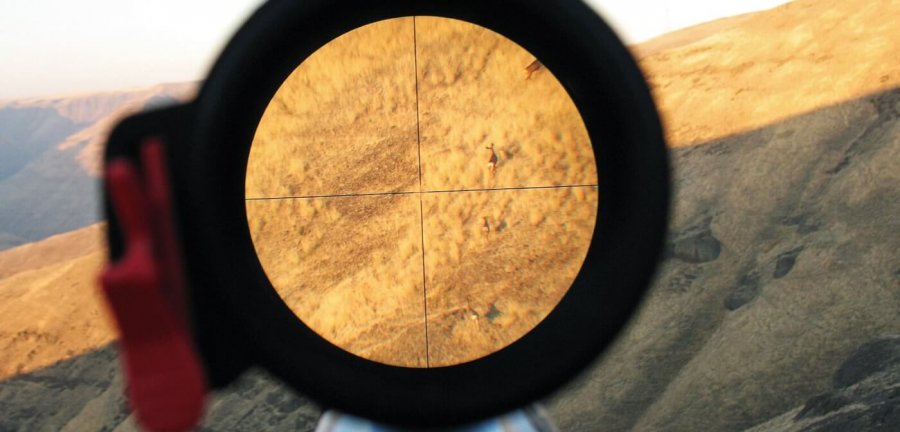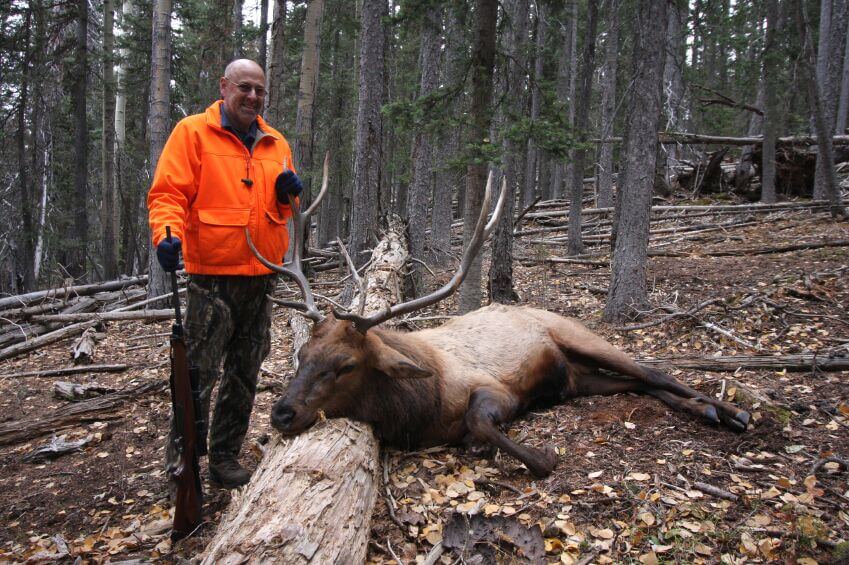The Beatles’ song “Happiness Is a Warm Gun” is one of my favorites because it’s creative, and the story behind the title compelled me to write my first article about animal rights. As legend has it, John Lennon saw the line “Happiness Is a Warm Gun” on the cover of a gun magazine. Paul McCartney remembers his reaction to it: “[I]t was so sick, you know, the idea of ‘Come and buy your killing weapons.'”
Middle school me agreed, and I wrote a hotly discussed anti-hunting article for my school newspaper. As middle-aged me writes this, I still can’t fathom how anyone could derive pleasure from shooting and killing animals, which makes me wonder what makes trophy hunters tick.
According to a study detailed in a Psychology Today post by Marc Bekoff, Ph.D., it’s all about “cost signaling.” By paying big bucks to hunt the largest and hardest to obtain animals, humans are signaling to other humans that they can absorb the exorbitant cost that comes with killing their next photo prop. It’s about status and showing off: A lion is a Cadillac is a yacht is a mansion—with severed animal heads on the walls.
And what better way to flaunt their status than to share photos of themselves on social media smiling ghoulishly next to animals’ dead bodies. As it turns out, there’s more to these sickening grins than meets the eye.
Another study shows that hunters display “pleasure” smiles when posing with slain animals and that these smiles increase in proportion to the size and perceived danger of the animals they’ve killed. “[Y]ou can’t fake a pleasure smile, you can’t do it on demand,” researcher Chris Darimont says. “[W]hat really makes a hunter very happy of course is killing an animal, and not only that but our data tells us that they’re quite a bit happier when they kill a large animal versus a small animal of the same species.”
Criminologist Xanthe Mallett also studied people who hunt for sport and discovered that they share a “dark triad” of personality traits that include narcissism, Machiavellianism, and psychopathy—many of the same traits observed in those who murder humans. The similarities don’t stop there: Trophy hunters plan their killing sprees carefully—gleefully taking life after life in order to fulfill their own selfish and aberrant desires.
When trophy hunters are met with opposition, they’re quick to yelp words such as “culling,” “conservation,” and “sport,” but those of us who appreciate animals for who they are and want them to be left in peace—not pieces—aren’t buying it. These people are murderers who collect corpses as trophies. And the only thing that they “win” is others’ disgust at their heartless self-congratulation for ending animals’ lives for fun.
Check back for The Psychology Behind Trophy Hunting—Part 2 to read about the things that you can do to help stop trophy hunting.







